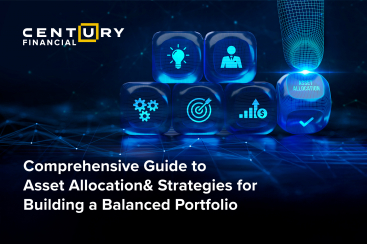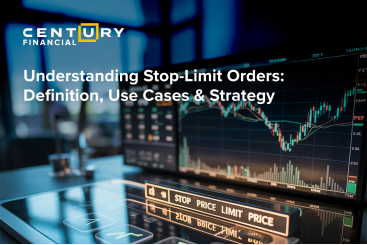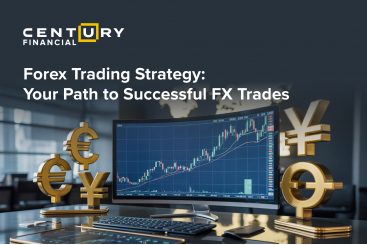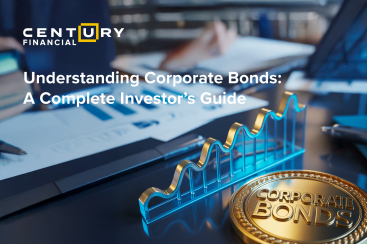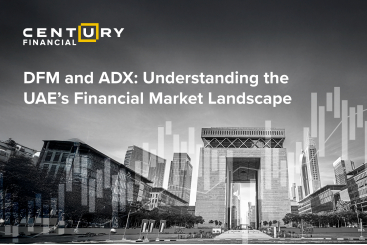Tuesday, December 05, 2023
OPEC's Impact on Brent Crude Amid Global Economic Flux
تم إعداد هذا المنشور من قبل سنشري للاستشارات

.jpg)
In a world where energy is the cornerstone of all economic activities, the role of the Organization of the Petroleum Exporting Countries (OPEC) in shaping oil prices, particularly Brent Crude, is pivotal. Understanding OPEC's influence on Brent Crude prices becomes crucial for investors, policymakers, and market analysts as global economies navigate a significant flux marked by geopolitical tensions, pandemic recovery, and shifting energy paradigms.
OPEC's Role and Influence on Global Oil Prices
OPEC, a consortium of 13 oil-rich nations, has long dominated the global market. By increasing or decreasing oil production, OPEC can effectively control the supply side of the oil market, thereby impacting prices. Brent Crude , a primary trading classification of sweet light crude oil, is a significant price benchmark for Atlantic basin natural oils. It prices two-thirds of the world's internationally traded crude oil supplies.
Recent Trends in Brent Crude Prices
In recent months, Brent Crude has experienced notable fluctuations.
Brent Crude oil prices increased to about $85 per barrel as people expected a decision from OPEC about oil production. This price rise happened because OPEC hinted that it would keep reducing the amount of oil it produces. This strategy of cutting production started during the COVID-19 pandemic when the oil demand went down significantly.
In September, Brent Crude prices averaged USD 92.7 per barrel, marking an 8.8% increase from August's price and a 2.3% rise year-on-year. This price uptick was particularly significant as it represented the sharpest increase since the onset of the war in Ukraine.
Predictable Income:
Bonds provide regular interest payments, offering a steady income stream, especially appealing to retirees or those seeking consistent returns.
Safety Net:
Bonds, especially government and treasury bonds, are often perceived as safer havens compared to stocks. They can act as a cushion during economic downturns.

Bond Market Basics:
The bond market, or the debt or credit market, is where bonds are bought and sold. It's divided into:
Primary Market:
This is where new bonds see the light of day. When entities need fresh capital, they issue new bonds directly to investors here.
Secondary Market:
Consider this a resale marketplace, where investors buy and sell bonds that have already been issued.
Bond Prices & Interest Rates:
One of the most crucial concepts in bond trading is the relationship between bond prices and interest rates. They move in opposite directions. When interest rates rise, bond prices fall and vice versa.
Risks of Bond Investments:
While bonds are generally considered safer than stocks, they come with their own set of risks:
Interest Rate Risk: A sudden spike in interest rates can lead to a dip in bond prices, potentially causing losses if you need to sell before maturity.
Credit/Default Risk: There's always a chance that the bond issuer might default on their payments.
Prepayment Risk: Some bonds can be paid off before maturity, which might affect returns if the bond offers a high-interest rate.
.png)
How Do Bonds Work?
When you buy a bond, you're lending money to the issuer. They promise to pay you periodic interest payments and return the principal amount at the bond's maturity date. Let’s understand this using an example:
Example:
Imagine you buy a bond issued by Company XYZ with a face value of $1,000, a coupon rate of 5% per annum, and a maturity of 10 years.
Face Value: This is the bond's par value or the amount you'll get back once the bond matures. In our example, it's $1,000.
Coupon Rate: This is the interest rate that the issuer agrees to pay the bondholder at a predetermined frequency, say annually or semi-annually. With a 5% coupon rate per annum, Company XYZ agrees to pay you 5% of the bond's face value every year. So, you'll receive $50 (5% of $1,000) annually.
Maturity Date: This is the date when the bond will expire, and the issuer will return the face value to the bondholder. In our scenario, Company XYZ will return your $1,000 after 10 years.
Throughout the bond's life, you'll receive your annual interest payments. If you hold onto the bond until its maturity, you'll get back your initial investment of $1,000. However, suppose you decide to sell the bond before its maturity in the secondary market. In that case, its price might be higher or lower than its face value, depending on factors like interest rate changes, the company's creditworthiness, and overall market conditions.
The Bottom Line:
Bond trading might seem complex, but it becomes a valuable tool in your investment portfolio once you grasp the basics. Whether you're looking to diversify your portfolio, earn stable returns, or find a safer investment avenue, bonds offer many opportunities.
Remember, the key to successful investing is diversification. By understanding the intricacies of bonds, bond investments, and the bond market, you can make more informed decisions and optimise your investment strategy.
Explore bond trading with Century Financials
.png)
Interview of Arun Leslie John, Chief Market Analyst with Bloomberg
لا تقدم شركة سنشري للإستشارات والتحليل المالي ش.ذ.م.م (الشركة) محتوى هذه المدونة، بما في ذلك أي أبحاث أو تحليلات أو آراء أو توقعات أو أي معلومات أخرى (يُشار إليها مجتمعةً باسم "المعلومات")، إلا لأغراض التسويق والتثقيف وإتاحة المعلومات العامة. ولا يُفسَّر ذلك على أنه نصيحة استثمارية أو توصية أو دعوة لشراء أو بيع أي أدوات مالية.
كما يجوز نشر هذه المعلومات عبر قنوات مختلفة، بما في ذلك موقع الشركة الإلكتروني، ومنصات الغير، والنشرات الإخبارية، والمواد التسويقية، ورسائل البريد الإلكتروني، ووسائل التواصل الاجتماعي، وتطبيقات المراسلة، والندوات الإلكترونية، وغيرها من وسائل التواصل. وبينما تسعى الشركة لضمان دقة المحتوى، فإنها لا تضمن اكتماله أو موثوقيته أو تحديثه في الوقت المناسب. وعليه، فأي قرارات تُتخذ بناءً على هذه المعلومات تكون على مسؤوليتك الشخصية. ولا تتحمل الشركة أي مسؤولية عن أي خسارة أو ضرر ناتج عن استخدامها.
ينطوي تداول المنتجات المالية على مخاطر كبيرة، بما لا يتناسب مع جميع المستثمرين. فيُرجى التأكد من وعيك التام بالمخاطر، وطلب الاستشارة المهنية المتخصصة إذا لزم الأمر.
يُرجى الاطلاع على بيان كشف المخاطر الشامل المتوفر على موقعنا الإلكتروني.
